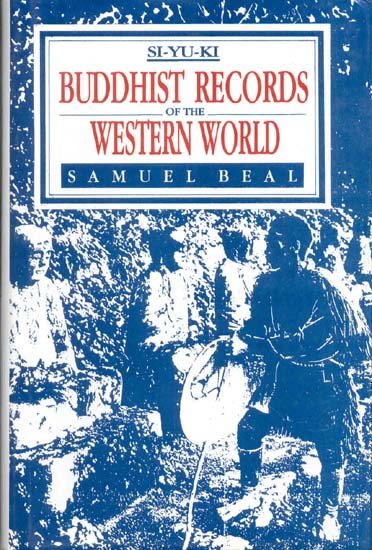Buddhist records of the Western world (Xuanzang)
by Samuel Beal | 1884 | 224,928 words | ISBN-10: 8120811070
This is the English translation of the travel records of Xuanzang (or, Hiuen Tsiang): a Chinese Buddhist monk who traveled to India during the seventh century. This book recounts his documents his visit to India and neighboring countries, and reflects the condition of those countries during his time, including temples, culture, traditions and fest...
Chapter 17 - Plants and Trees, Agriculture, Food, Drink and Cookery in India
The climate and the quality of the soil being different according to situation, the produce of the land is various in its character. The flowers and plants, the fruits and trees are of different kinds, and have distinct names. There is, for instance, the Amala fruit (Ngán-mo-lo), the āmla fruit (Ngán-mi-lo), the Madhuka fruit (Mo-tu-kia), the Bhadra fruit (po-ta-lo), the Kapittha fruit (kie-pi-ta), the Amalā fruit ('O-mo-lo), the Tinduka fruit (Chin-tu-kia), the Udumbara fruit (Wu-tan-po-lo), the Mocha fruit (Mau-che), the Nāríkela fruit (Na-li-ki-lo), the Panasa fruit (Pan-na-so). It would be difficult to enumerate all the kinds of fruit; we have briefly named those most esteemed by the people. As for the date (Tsau), the chestnut (Lih), the loquat (P'i), and the persimmon (Thi), they are not known. The pear (Li), the wild plum (Nai), the peach (T'au), the apricot (Hang or Mui), the grape (Po-tau), etc., these all have been brought from the country of Kaśmīr, and are found growing on every side. Pomegranates and sweet oranges are grown everywhere.
In cultivating the land, those whose duty it is sow and reap, plough and harrow (weed), and plant according to the season; and after their labour they rest awhile. Among the products of the ground, rice and corn are most plentiful. With respect to edible herbs and plants, we may name ginger and mustard, melons and pumpkins, the Heun-to (Kaṇḍu?) plant, and others. Onions and garlic are little grown; and few persons eat them; if anyone uses them for food, they are expelled beyond the walls of the town. The most usual food is milk, butter, cream, soft sugar, sugar-candy, the oil of the mustard-seed, and all sorts of cakes made of corn are used as food. Fish, mutton, gazelle, and deer they eat generally fresh, sometimes salted; they are forbidden to eat the flesh of the ox, the ass, the elephant, the horse, the pig, the dog, the fox, the wolf, the lion, the monkey, and all the hairy kind. Those who eat them are despised and scorned, and are universally reprobated; they live outside the walls, and are seldom seen among men.
With respect to the different kinds of wine and liquors, there are various sorts. The juice of the grape and sugarcane, these are used by the Kṣattriyas as drink; the Vaiśyas use strong fermented drinks;[1] the śramaṇs and Brāhmans drink a sort of syrup made from the grape or sugarcane, but not of the nature of fermented wine.[2]
The mixed classes and base-born differ in no way (as to food or drink) from the rest, except in respect of the vessels they use, which are very different both as to value and material. There is no lack of suitable things for household use. Although they have saucepans and stewpans, yet they do not know the steamer used for cooking rice. They have many vessels made of dried clay; they seldom use red copper vessels: they eat from one vessel, mixing all sorts of condiments together, which they take up with their fingers. They have no spoons or cups, and in short no sort of chopstick. When sick, however, they use copper drinking cups.
Footnotes and references:
[1]:
"Shun lo", high-flavoured spirits.
[2]:
Called, therefore, "not-wine-body," i.e., non-alcoholic.
